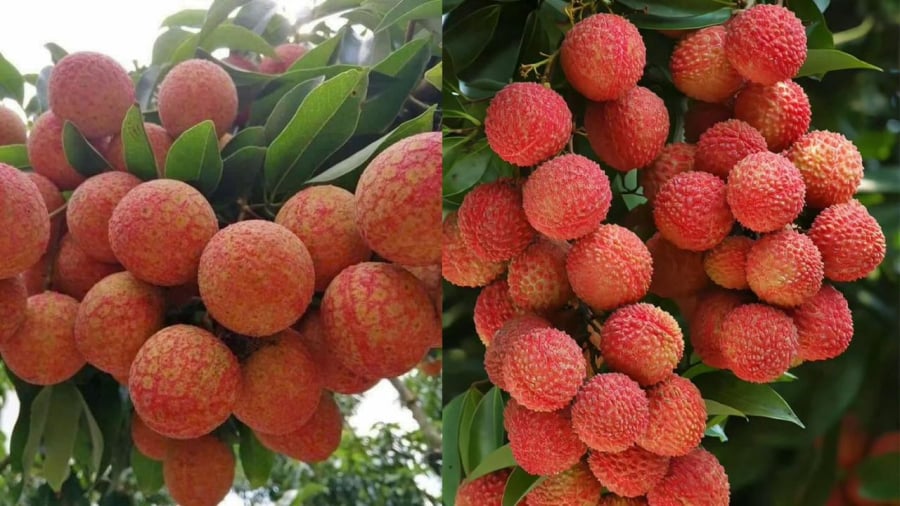Lychees are a delicious summer treat, packed with a sweet and juicy flavor, and abundant in nutrients. However, despite their popularity, not everyone can indulge in lychees freely. For certain individuals, consuming large quantities of this fruit can lead to adverse effects and even aggravate existing health conditions.
Nutritional Value of Lychees
Lychees are not just tasty but also packed with nutrients beneficial to our bodies. On average, 100g of lychee flesh provides approximately:
- 66 kcal
- 15.2g of natural sugar
- 1.3g of fiber
- 0.8g of protein
- Vitamin C (71.5mg – meeting 119% of the daily recommended intake)
- Vitamin B6, potassium, copper, magnesium, and antioxidants such as flavonoids
These nutrients boost immunity, combat aging, improve digestion, and protect cardiovascular health. However, due to their high sugar content, lychees can be a double-edged sword for certain individuals.

1. Diabetics Should Exercise Caution
Lychees contain a significant amount of sugar, with up to 15.2g per 100g, mostly in the form of glucose. Overeating these fruits can cause a rapid spike in blood sugar levels, leading to a loss of control over blood glucose management. For diabetics, this can result in symptoms such as dizziness, sweating, nausea, or even coma if not timely addressed.
Recommendation: Diabetics should limit their lychee intake to 3-4 fruits per session and closely monitor their blood sugar levels.
2. Children: Immature Digestive System
Lychees are high in glucose, and overconsumption by children can lead to internal “heat,” causing rashes, heat rash, abdominal pain, or fever. Uncontrolled consumption of this heating fruit can also disrupt a child’s delicate digestion.
Expert Advice: Limit children to 5-6 lychees per serving, and avoid giving them the fruit when they are hungry or in the evening.
3. Individuals with Autoimmune Diseases Should Refrain
Lychees are rich in vitamin C and potent antioxidants, which can stimulate the immune system. For those with autoimmune conditions such as lupus, rheumatoid arthritis, or multiple sclerosis, this stimulation may exacerbate inflammation and worsen symptoms.
4. Overweight and Obese Individuals
While lychees contain fiber and pectin that aid digestion, their high sugar content is a concern for those struggling with obesity. Excessive lychee consumption contributes to fat accumulation, water retention, and challenges in weight management.
Suggestion: Eat lychees after a meal, not as a snack, and ensure adequate physical activity.
5. Individuals with Allergies and Sensitivities
Some people may be allergic to natural sugars or compounds present in lychees, leading to rashes, diarrhea, nausea, dizziness, or even anaphylaxis.
Note: If you experience any unusual symptoms after consuming lychees, stop immediately and seek medical attention if the reaction is severe.
6. Individuals with Chickenpox
Lychees have a heating effect, and consuming them can disrupt the body’s yin-yang balance, especially during an active infection. For individuals with chickenpox, overeating lychees may lead to secondary infections, more lesions, mouth ulcers, and delayed wound healing.
7. Pregnant Women
Pregnant women are at an increased risk of developing gestational diabetes. Excessive lychee intake can cause a sudden spike in blood sugar, leading to difficult labor, increased risk of infection and postpartum hemorrhage. Additionally, the heating nature of lychees may cause oral ulcers, constipation, and discomfort.
Recommendation: Pregnant women should limit their intake to 5-6 lychees per serving, 2-3 times a week, to obtain nutrients without adverse effects.
Consuming Lychees in a Healthy Manner
Lychees are delicious and packed with vitamins and minerals. However, due to their high sugar content and heating nature, moderation and mindful consumption are key to avoiding unwanted consequences.
- On average, adults should consume around 10 lychees per serving, 2-3 times a week.
- Avoid eating lychees on an empty stomach.
- Refrain from consuming lychees in the evening, especially if you have digestive issues.
- Balance lychees with cooling foods like yogurt or agar agar dessert to maintain equilibrium.





































